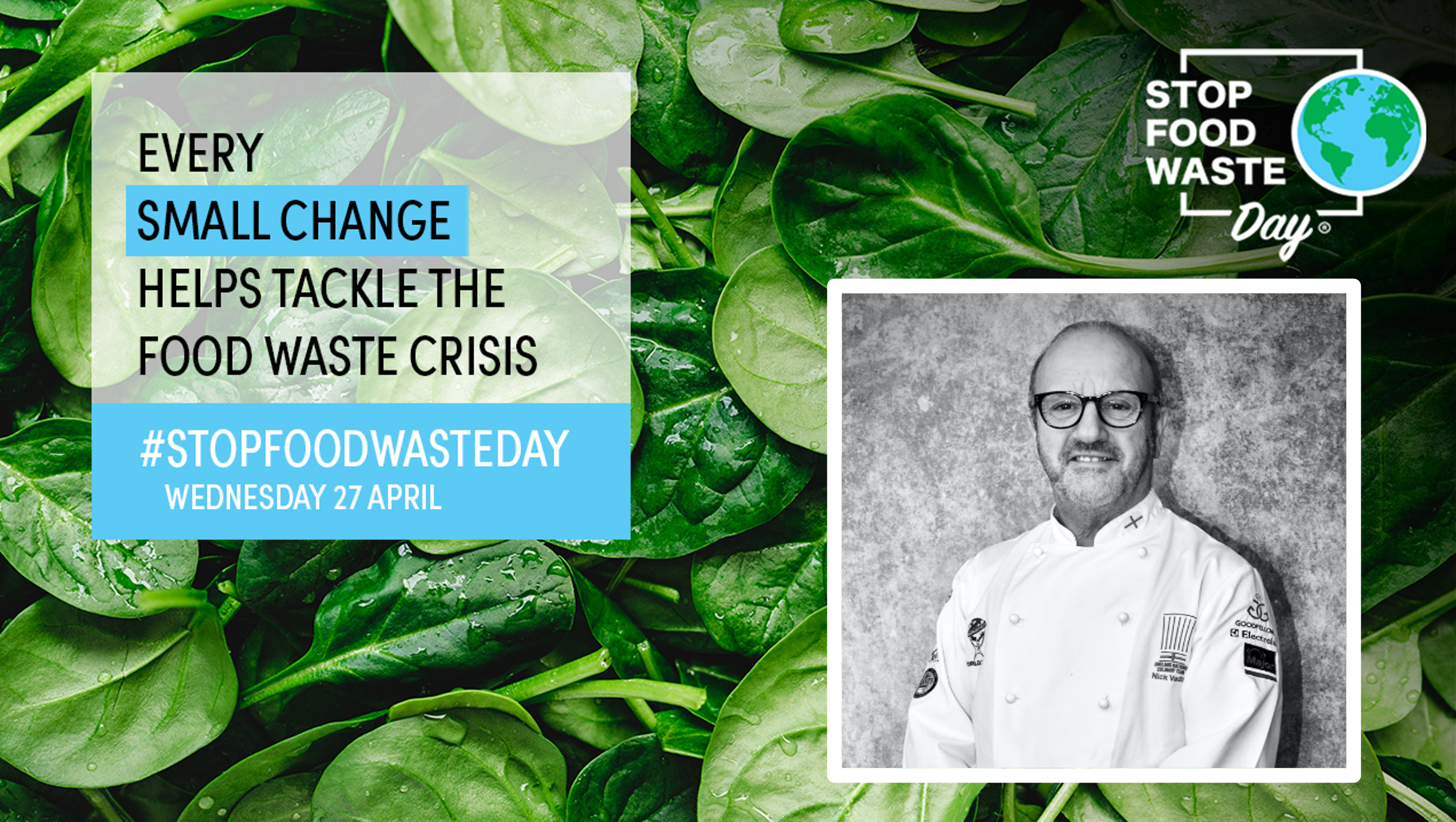


Stop Food Waste Day on Wednesday 27th April 2022, aims to teach people ways to reduce food wastage. Launched in 2017 by our parent company, Compass Group, the initiative sees Compass businesses around the world acting to address this global problem.
Ahead of Stop Food Waste Day, we interviewed Nick Vadis, Culinary Director at Foodbuy. Here, we share how he tackles kitchen waste and what Foodbuy is doing as a business to combat this issue.
As the UK’s largest procurement company that delivers for over 5,000 sites to clients serving over 1 million meals each and every day, we want to reduce food loss and waste across our supply chain – starting in our own operations.
We are constantly looking at ways to source food more sustainably and give surplus food a new purpose. An example is turning fresh surplus bread into planet-saving beer through our partnership with social enterprise, Toast Ale. We also work with Rubies in the Rubble, a sustainable food brand, making delicious condiments from surplus ingredients that would otherwise go to waste.
Through our partnership with FareShare, the UK’s biggest charity fighting food waste, we donated enough surplus food for an estimated 203,985 meals in 2021 alone. We donate surplus food to FareShare who in turn, transforms it into meals for vulnerable people.
A small change everyone can make is not to overproduce either in the home or as a professional chef in the commercial kitchen. Think about what you can eat or sell and produce accordingly. In a commercial kitchen, always batch cook where possible as anything not cooked can be repurposed or cooked at a later date.
When planning your menus, always look at what might be left as part of the preparation and try to base the following day's dishes around them. When chefs prepare broccoli for a vegetable, they invariably discard the stalk. What you can do is roast the broccoli stalks to make a salad dish for the next day!
Create a bank of recipes that are on hand in the kitchen for utilising ingredients that may be surplus or leftover from another dish.
One of my favourite ways is to utilise leftover bread slices or crusts. You can freeze them until you have enough and make comforting bread and butter pudding - eat it cold as a cake or snack!
Get into the habit of planning your meals at home and look at the ingredients, especially vegetables and plan other dishes so all the products can be used. Keep things refrigerated to help extend their shelf life as a lot of food waste is products spoiling.
In a commercial kitchen, food waste is money being wasted. So, look at clever and inventive ways to use up by-products. I like to roast stalks from vegetables and add them to salads or use them as a vegetable the following day. Seeds can be dried and roasted and added to breakfast muesli or served as a snack. Soft fruit that is starting to spoil can be made into a compote or jam for later use - the possibilities are endless!
We all have a part to play in this, either in the home kitchen or in a commercial kitchen, there are many small lifestyle tweaks we can all make to help improve the health of the planet. Once you start, you begin looking at ingredients in a different way and you start to cook better. An example is batch cooking, you can lock in all the freshness and enhance the eating experience.
These are small steps but if we all start to think like this it becomes a big step towards reducing the amount of food either cooked or in preparation that we waste. Let’s keep it up for the planet!
Visit www.stopfoodwasteday.com for more resources including the Food Waste Cookbook which features recipes that give a second life to ingredients that most commonly go to waste in home kitchens.
